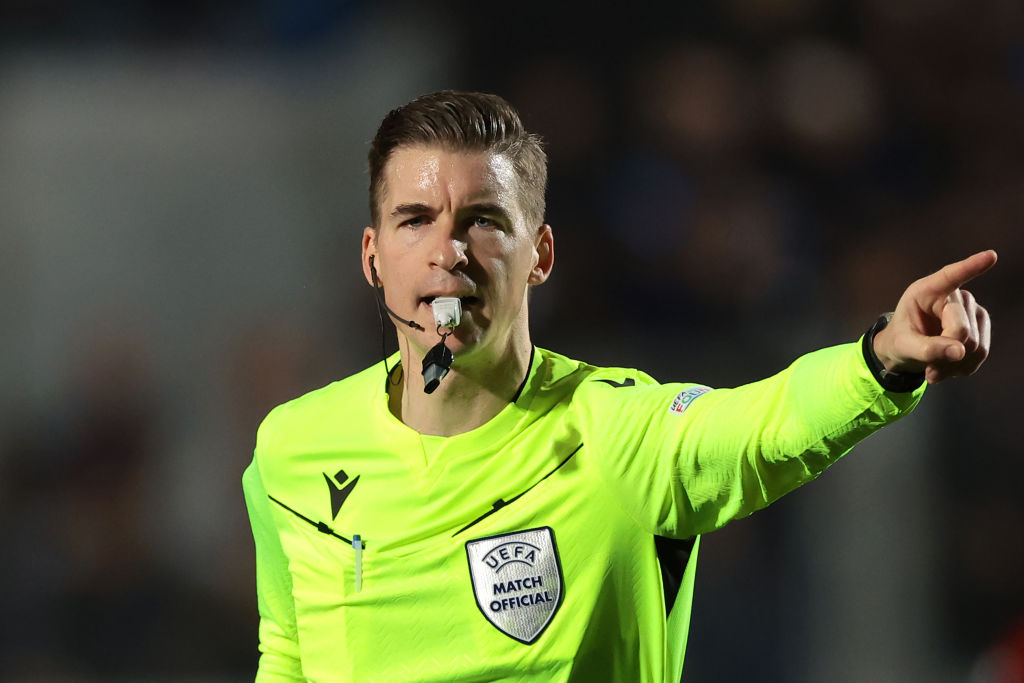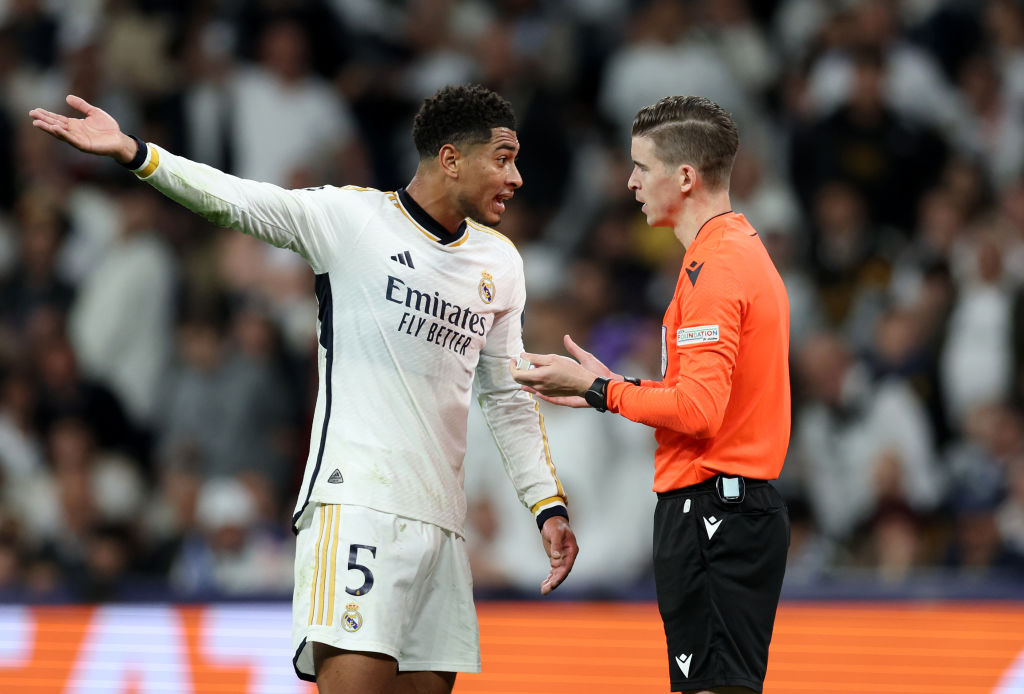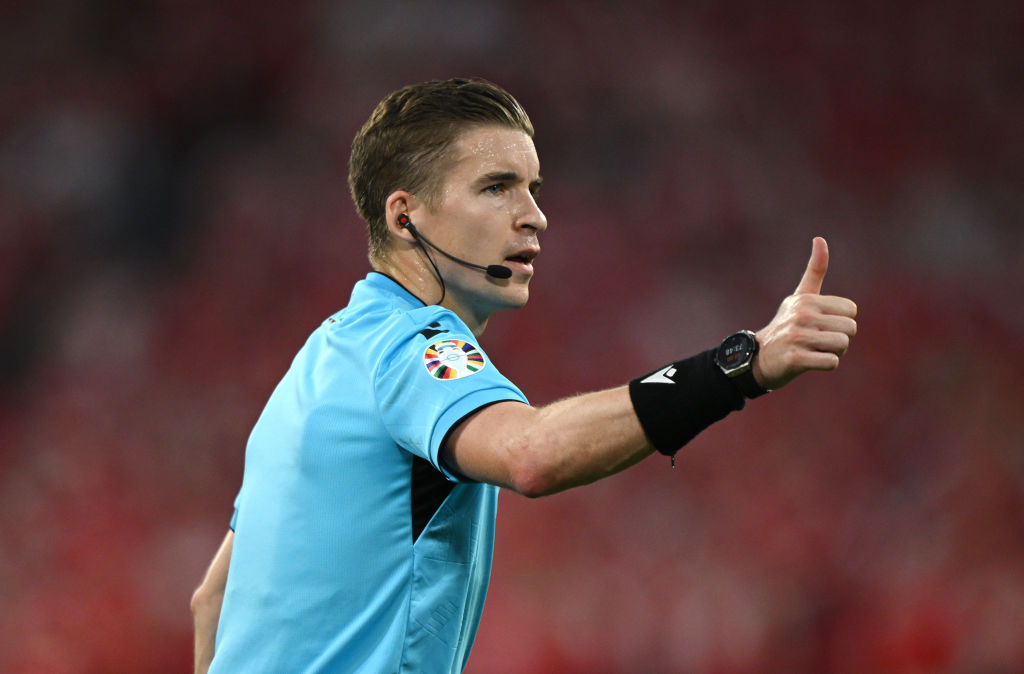
Francois Letexier will referee the final of between and on Sunday, taking charge of a major international showpiece for the first time.
thanks to a on Wednesday night, while Spain beat France by the same scoreline 24 hours earlier.
Both sides will be , as will Letexier after being confirmed to take charge of the biggest match of his career.
The Frenchman only turned 35 in April, but has already risen to the elite level of refereeing, having made his debut in Ligue 1 back in 2016.
Since then he has taken charge of finals of the Coupe de France and refereed the UEFA Super Cup between Manchester City and Sevilla last year.
He has been involved in a Champions League final as fourth official and Europa League final as VAR, appointed for the Real Madrid vs Borussia Dortmund clash this year and Manchester United vs Villarreal in 2021 respectively.
Letexier has been in charge of three matches during Euro 2024 so far, handling Croatia 2-2 Albania and Denmark 0-0 Serbia during the group stage and Spain 4-1 Georgia in the last 16.

The Frenchman did not show a red card in any of those matches, peaking at five yellows in the goalless dud between Denmark and Serbia.
Some England fans may be familiar with him from European competition last season, as Letexier refereed in the Champions League and Europa League.
He was in charge of Liverpool’s 1-0 win at Atalanta and the epic 3-3 draw between Real Madrid and Manchester City in the Champions League quarter-final first leg in Spain.

The assistant referees on Sunday will be Frenchmen Cyril Mugnier and Mehdi Rahmouni, with the fourth official Szymon Marciniak from Poland. Another French official, Jérôme Brisard, will be VAR.
In terms of memorable decisions in Letexier’s career, he was in charge of a Ligue 1 match between Nice and Nantes which finished 1-1 after a controversial late penalty awarded to Nice.
The referee said that he received threats after the match causing him to file a complaint for the first time in his career.
‘A referee is used to being judged on his technical decisions,’ he told L’Equipe. ‘But we are less accustomed to being so on his probity and his honesty.
‘As soon as they are addressed to the man, the criticisms have collective consequences which should not be minimised, because they reflect on all the referees, in particular the amateurs. But there are also individual consequences, the many threats suffered in the course of my profession and on social networks. For the first time, I filed a complaint.’
, . , and .




















